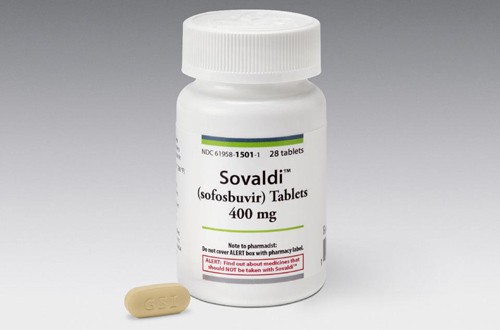
A programme aiming to eliminate hepatitis C in the UK has led to rancour – and a lawsuit – between pharma company AbbVie and NHS England.
It all stems from a procurement process launched by the NHS earlier this year to lay in supplies of hepatitis C virus (HCV) drugs in order to launch a major treatment campaign, which has now been delated, reports Health Service Journal.
Details are still sketchy with both parties unwilling to talk ahead of a court date, but AbbVie is claiming NHS England breached procurement rules when it was seeking suppliers of the HCV drugs to be used in the programme, thought to be valued at hundreds of millions of pounds.
The plan is to make the UK the first country in the world to get rid of HCV, with a target date of 2025, and in January NHS England issued a call for companies to offer their drugs at discounted rates as part of a massive procurement drive – which it said was the largest it had ever undertaken.
At the time, it was reported that the aim was to drive the cost of treating HCV down to around £10,000 from £35,000 in return for initial three year supply contracts, with an option to extend by a further two years. AbbVie is accusing NHS England of not treating all bidders fairly.
The plan was only made possible by enormous strides in the treatment of HCV and in particular new directly-acting antiviral drugs – pioneered by Gilead Sciences with its Sovaldi (sofosbuvir) and followed with additional therapies from the likes of AbbVie, Johnson & Johnson and MSD – that made it possible to cure infections with just a few weeks’ treatment.
Prior to that, patients had to undergo months of treatment with interferon-based drugs that lacked efficacy and came with serious side effects.
Gilead was the undisputed leader of the market with Sovaldi – which made $10bn in sales in its first full year on the market in 2014 thanks to pent-up demand for treatment – as well as follow-up combinations such as Harvoni (sofosbuvir/ledipasvir) as well as Epclusa (sofosbuvir/velpatasvir) that was effective against all HCV genotypes.

Drugs from AbbVie – including its ‘universal’ treatment Maviret (glecaprevir/pibrentasvir) – and products from other competitors never achieved those heights, but have still enjoyed profitable sales. However, the overall HCV market is now in steep decline – mainly because the new drugs were so successful the pool of eligible patients has started to dry up. Efforts now focus on identifying and treating undiagnosed HCV cases.
NHS England’s plan was to treat around 5,000 HCV patients by October of this year, but that deadline has passed without the programme officially getting started, according to HSJ, which says NHS England has confirmed the procurement process is still ongoing. It’s not clear whether the lawsuit is the reason for the delayed start.
There have been some signs of progress in HCV, with Public Health England reporting in the summer that last year deaths from hepatitis C-related end-stage liver disease fell by 11% in 2017 compared to the prior year, although the number of cases remained stable at around 2,000 new cases – as it has done since 2011. There are around 160,000 people in the UK infected with HCV.
While the decline in deaths suggests more people are getting access to drug treatment, PHE said more needs to be done, and it urged “anyone who has ever injected drugs, even once or a long time ago, had a tattoo or medical treatment overseas where proper hygiene procedures may not have been followed, or has had a blood transfusion before hepatitis C screening was in place, to get tested”.
Meanwhile, HCV Elimination Days being held in some areas to bring together commissioners, clinicians, drug workers and other interested parties to discuss widening access to treatment.




